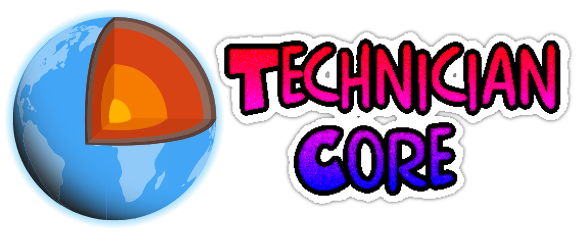
Introduction
The MERN stack is a popular set of technologies used for building full-stack web applications. The acronym MERN stands for MongoDB, Express.js, React.js, and Node.js. Each component in the MERN stack plays a crucial role in the development process, allowing developers to build robust and scalable applications with a consistent language, JavaScript. The MERN stack enables full-stack developers to build and manage every part of a web application—from the client-side interface to the server-side logic and database management. This allows developers who have mastered the MERN stack by enrolling in a technical course comprising full stack developer classes to gain complete ownership and control over the entire development process.
MERN Components
The components that constitute MERN— MongoDB, Express.js, React.js, and Node.js—are described briefly in the following sections.
MongoDB
Type: NoSQL Database
Role: MongoDB is a document-oriented NoSQL database that stores data in JSON-like documents. It provides a flexible schema design, making it ideal for applications that require scalable, high-performance data storage. MongoDB is a much sought-after topic in full stack developer classes because it enables handling large volumes of unstructured data—one of its key advantages.
Use Case: Data storage and retrieval.
Express.js
Type: Web Application Framework
Role: Express.js is a lightweight and flexible Node.js web application framework that provides a set of tools to build server-side applications. It simplifies the process of handling HTTP requests, setting up routes, and managing middleware, allowing developers to create robust APIs and web servers quickly.
Use Case: Building RESTful APIs, handling HTTP requests, and server-side logic.
React.js
Type: Front-end JavaScript Library
Role: React.js is a front-end library developed by Facebook for building user interfaces, particularly single-page applications (SPAs). It allows developers to create reusable UI components, manage the state of their application, and efficiently update the UI in response to data changes using a virtual DOM.
Use Case: Building interactive and dynamic user interfaces.
Node.js
Type: JavaScript Runtime
Role: Node.js is a server-side JavaScript runtime built on Chrome’s V8 engine. It allows developers to execute JavaScript code outside the browser, enabling server-side scripting. Node.js is known for its event-driven, non-blocking I/O model, which makes it highly efficient for building scalable network applications.
Use Case: Server-side scripting, handling asynchronous operations, and running the back-end of web applications.
The MERN stack uses JavaScript for both front-end and back-end development. This enables full-stack developers who have mastered MERN from a comprehensive Java full stack developer course in cities reputed for advanced technical learning to work more efficiently. This consistency reduces the cognitive load of switching between different languages and ensures a smoother development process.
How MERN Stack Works Together
Here is how components of the MERN stack work together.
- Front-end: React.js handles the front-end, where the user interacts with the web application. React components fetch data from the server and render the UI accordingly.
- Back-end: Node.js, along with Express.js, handles the server-side logic, including routing and API endpoints. These components process incoming requests, perform operations, and interact with the database.
- Database: MongoDB stores the application’s data, which can be retrieved, updated, or deleted by the server (Node.js + Express.js) based on the operations triggered by the front-end.
Advantages of Using the MERN Stack
Using MERN stack is a skill that can be learned by enrolling in an advanced Java full stack developer course from a learning institute reputed for advanced technical learning. There are several ways in which the use of MERN can simplify the full stack development process.
- Single Language: JavaScript is used throughout the entire stack, simplifying development and allowing developers to work seamlessly across both the front-end and back-end.
- Full-Stack Development: MERN enables full-stack development, allowing developers to build both the client-side and server-side components of a web application using a consistent technology stack.
- Scalability: Each component in the MERN stack is designed to handle large-scale applications. MongoDB’s schema-less design, Node.js’s asynchronous nature, and React’s component-based architecture contribute to the scalability of the stack.
- Community and Ecosystem: The MERN stack has a large and active community, with plenty of resources, libraries, and tools available for developers.
Common Use Cases
Following is a list summarizing the common use cases (applications) of the MERN stack.
- Social media applications
- E-commerce platforms
- Content management systems (CMS)
- Collaborative tools and project management applications
Conclusion
The MERN stack is a powerful choice for developers looking to build modern, dynamic web applications with a unified language and a robust set of tools. It is widely adopted by developers and companies, which means there is extensive community support, a wealth of online resources, and a rich ecosystem of libraries and tools. With the MERN stack, developers can quickly prototype and build applications without needing to switch between different technologies. This is especially useful in startups or small teams where developers need to deliver features quickly. Ambitious full stack developers should acquire skills in the MERN stack by attending full stack developer classes that have good coverage in the application of the MERN stack.
Business Name: ExcelR – Full Stack Developer And Business Analyst Course in Bangalore
Address: 10, 3rd floor, Safeway Plaza, 27th Main Rd, Old Madiwala, Jay Bheema Nagar, 1st Stage, BTM 1st Stage, Bengaluru, Karnataka 560068
Phone: 7353006061
Business Email: enquiry@excelr.com

